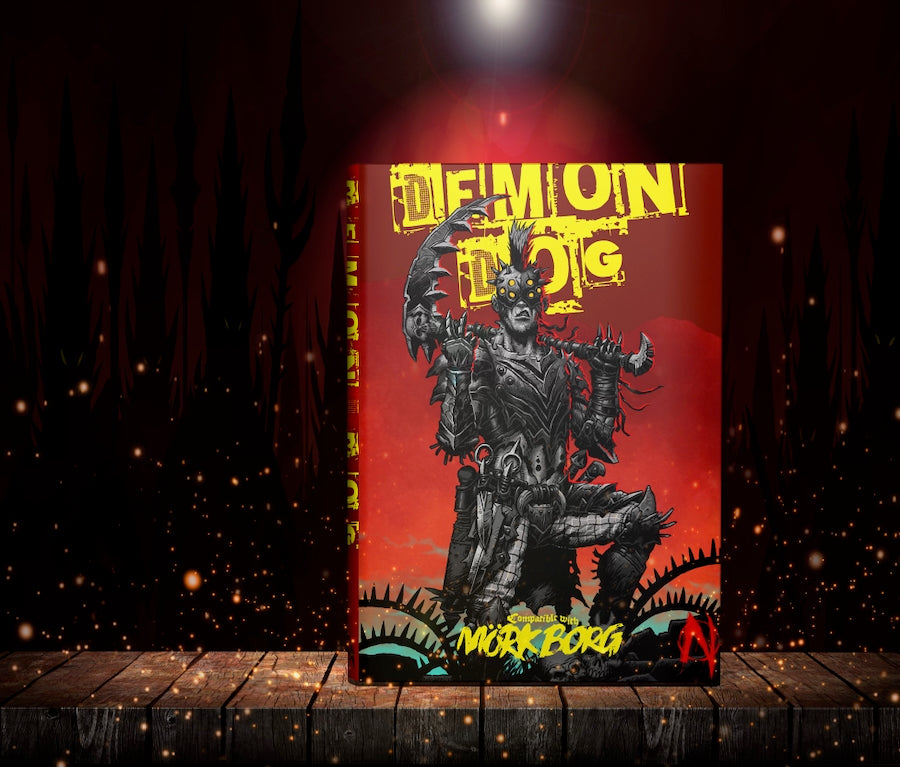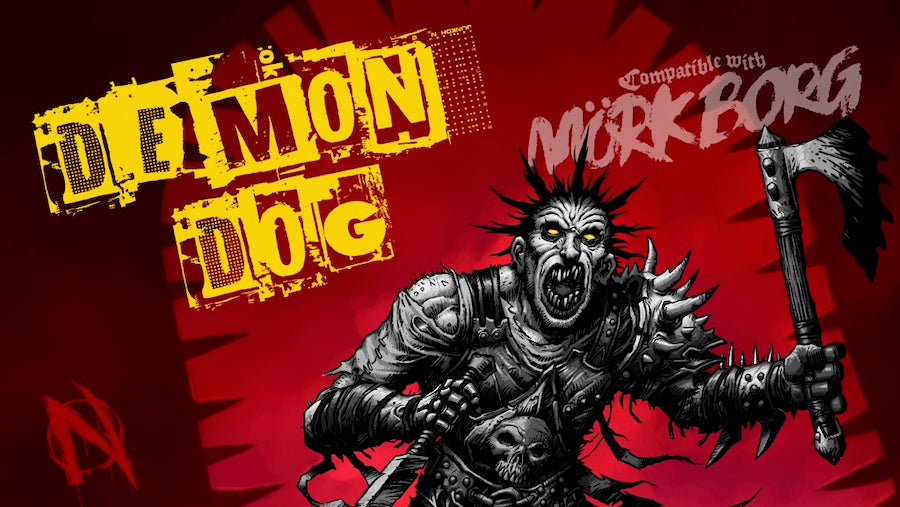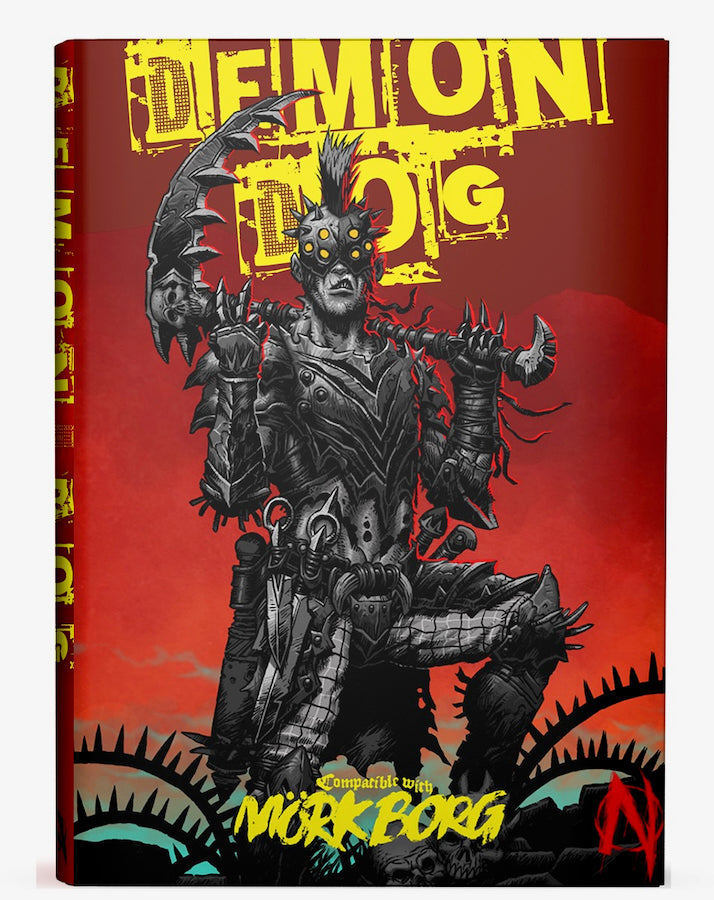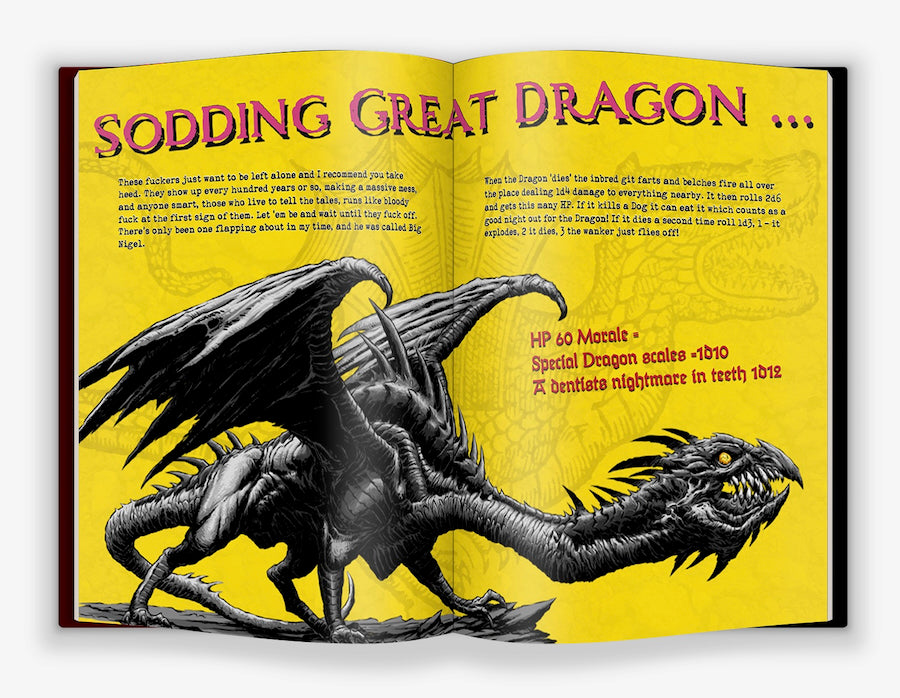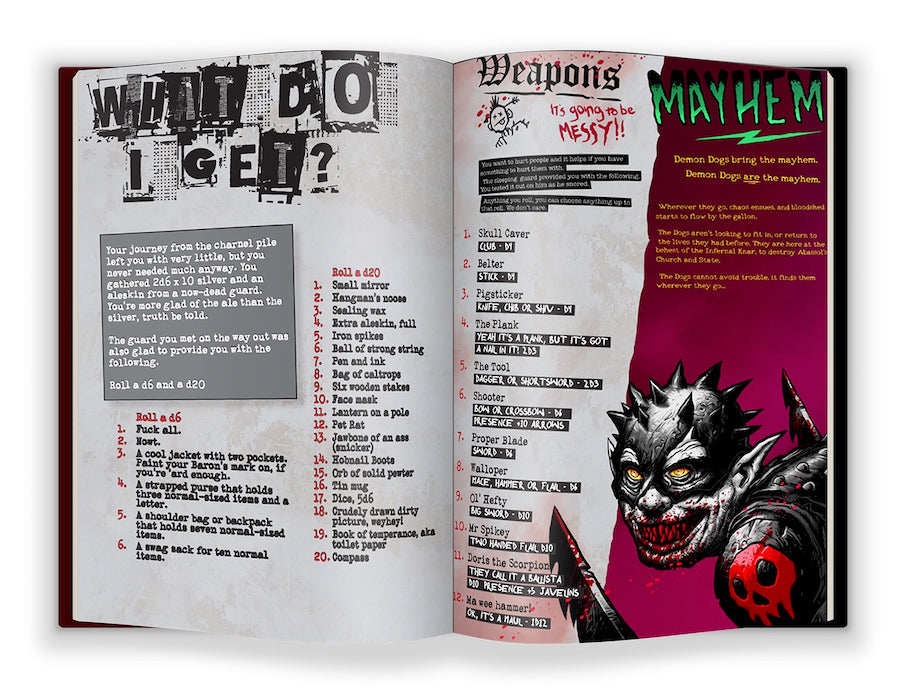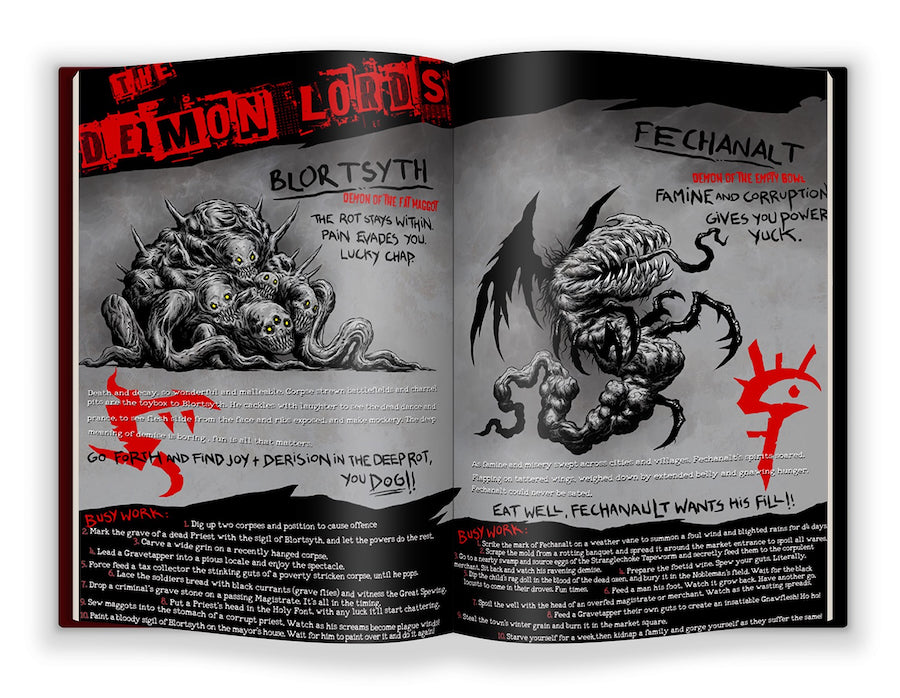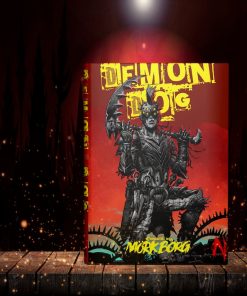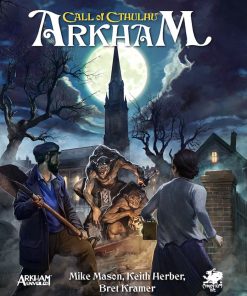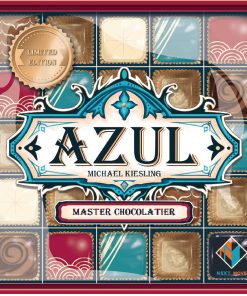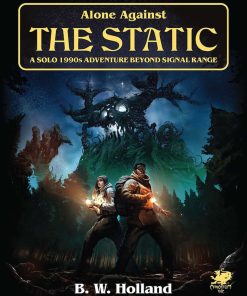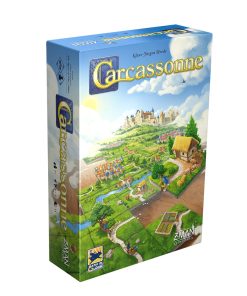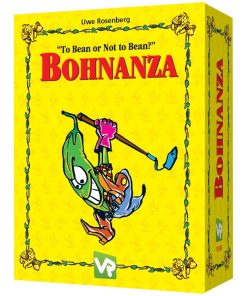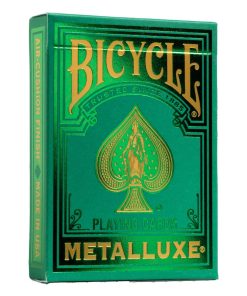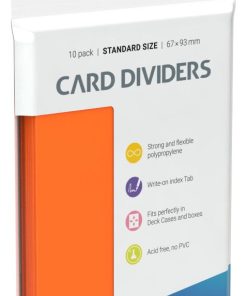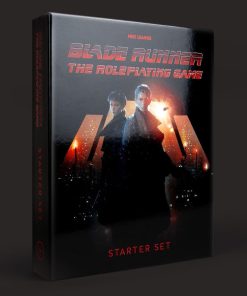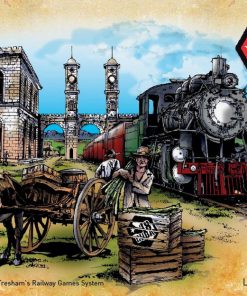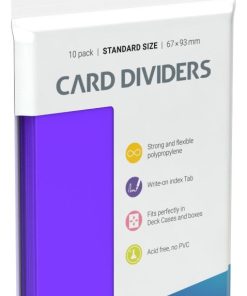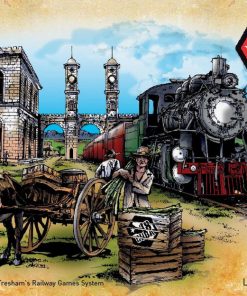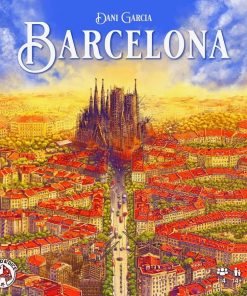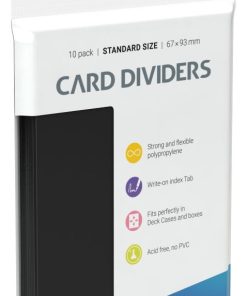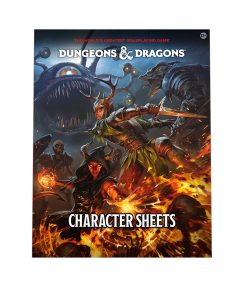Demon Dog Nightfall Games
$ 49,99 $ 29,99
You died. It’s very sad. Get over it.
Luckily for you, you negotiated with one of the six Demon Barons and you get to finish your unfinished business. Go get revenge, seek redemption and … um, oh yeah, you made a pact. You’d better do what the demon wants too.
As a ‘Demon Dog’, you get to wander the world, dealing with all those people who deserve a bit of a shoeing. There’s the Clergy and their Inquisitors that could do with tasting a head butt and they’ve got churches to burn. There’s the press that peddle lies to the gullible with an open ear and they might not like it if their scriveners get a wee bit stabbed. What about the toffee-nosed monarchy and their loud-mouthed guards, they might want to go home in an ambulance wagon. Give it some welly.
But don’t forget your Demon Baron needs stuff doing. Sometimes that’s a bit less fun; other times, it’s right up your street. Wayhey!
Demon Dog is a role-playing game set in a medieval history that never was. You play “Dogs”, revenants that were snatched from purgatory by Demon Barons, seeking redemption and a pint. You’re not a hero now and you weren’t one before you lived, but you’re possibly making things better, or worse, or at the very least less boring.
‘Demon Dog’ is inspired by MÖRK BORG and is compatible with it, but is a stand alone product. You can smash together the ideas in both books or pull ideas from one into the other.
MÖRK BORG’S rules are all about minimalistic simplicity. They designed them so that they will never interfere with your game, and so that you can easily adapt and change them to better suit your needs. In short: whenever you try to accomplish something in the world, be it climbing a ruin or bashing a demon head in, you roll a d20, apply a modifier and try to beat a set number. That’s it. And you either let your equipment define your character, or you pick one of the six optional classes that each has their specific quirks and strengths. The system is player-facing, and they will roll most of the dice, to really put the destiny of their characters in their hands. No fudging allowed. The few times the GM will roll the dice are when NPC’s morale or reaction is rolled, things like that.
Speedy Shipping and professional packaging
Our long-standing relationships with UPS FedEx DHL and other international carriers allows us to offer an array of shipping services. Our warehouse staff is highly trained and will pack the items according to the exact and precise specifications. Your items will undergo an exhaustive inspection and properly secured before they are delivered. We deliver to thousands of clients every day in a variety of countries. This is an indication of our determination to become the largest online retailer worldwide. The distribution centers and warehouses distribution are located in Europe and the USA.
Orders with more than 1 item are assigned processing periods in accordance with the item.
Prior to shipment, we check the item thoroughly before sending the items. Most orders are delivered within 48 hours. The delivery time should be between 3-7 days.
Returns
The inventory is always changing and we are unable to completely manage it due to the fact that several parties are involved, including our factory and warehouse. Stocks can be changed at any moment. You may not receive your order once the order has been made.
Our policy is valid for a period of 30 days. If 30 days have passed in the past since you purchased however, we're unable to give an exchange or refund.
In order for your item to be considered eligible for return, it must be unopened and in the condition you received it. It must also be returned in the original packaging.
Related products
Role Playing Game
Board Game
Role Playing Game
Card Storage
Role Playing Game
Board Game
Board Game
Board Game
Role Playing Game
Board Game
Board Game
Role Playing Game
Board Game
Board Game
Board Game
Board Game Expansion
Board Game Expansion
Arkham Horror: The Card Game – Where the Gods Dwell: Mythos Pack Fantasy Flight Games
Board Game
Board Game
Role Playing Game
2024 Dungeons & Dragons Character Sheets – PREORDER 17 SEPTEMBER 2024 Wizards of the Coast
